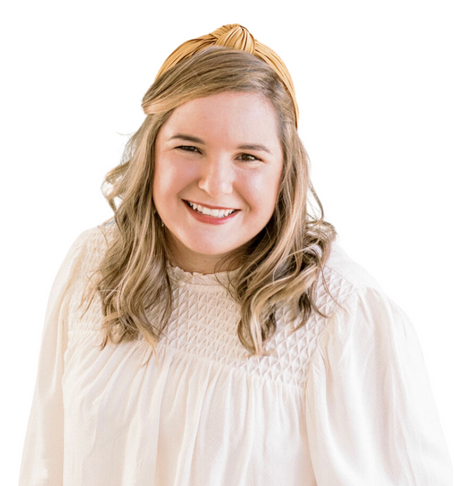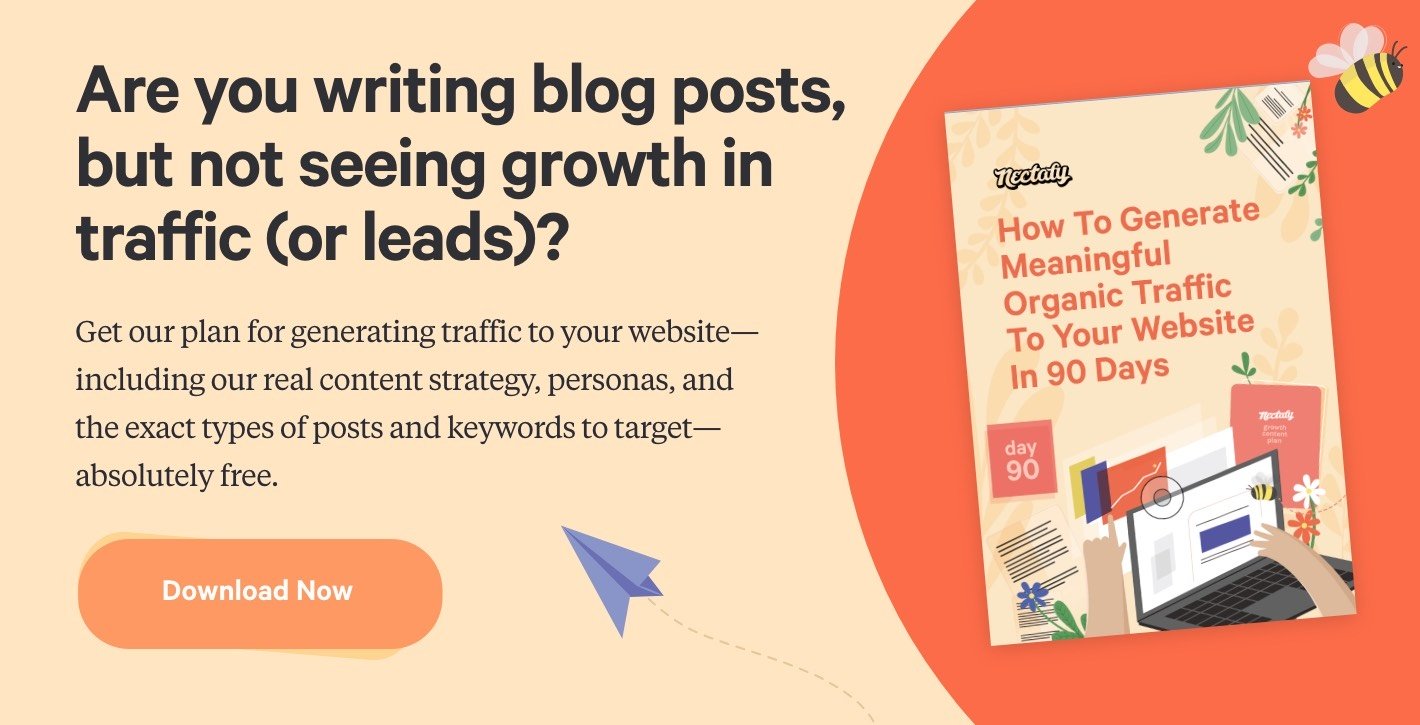14 SaaS Leaders On Post-COVID-19 Marketing: What To Stop, Start, & Continue


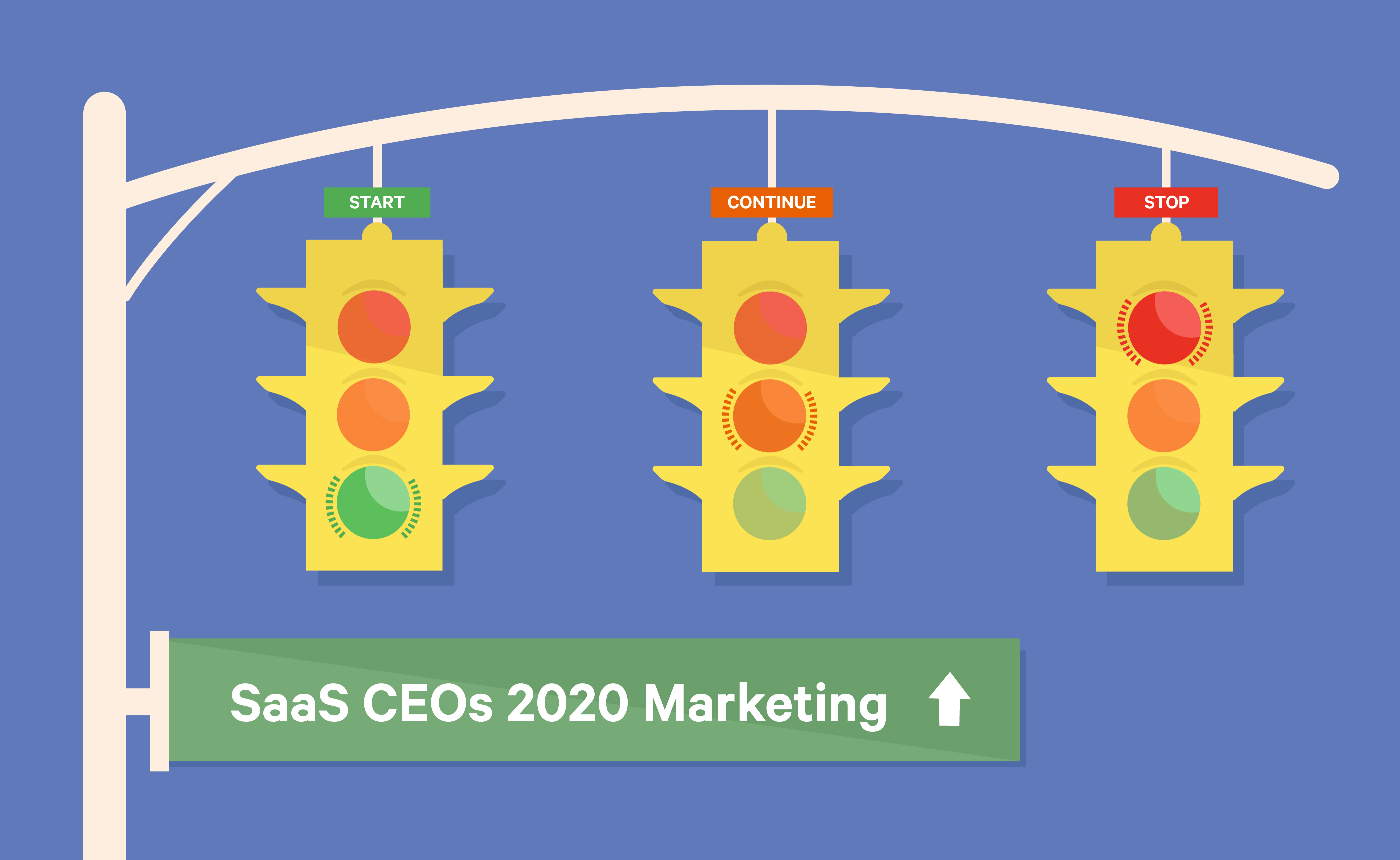
Earlier in 2020, we spoke with SaaS company founders and CEOs to find out what they planned to start doing, stop doing, and continue doing this year in terms of their marketing strategy. Just as we were ready to publish the article, the COVID-19 pandemic hit the United States, impacting many companies’ existing marketing plans and dramatically changing budgets.
Now more than ever, we were curious about how these CEOs planned to alter their marketing strategies, so we reached out again. Below is a summary of their comments around marketing in a post-COVID-19 economy.
14 CEOs & Marketers Share Their Post-COVID-19 Marketing Plans: The Data
What Companies Are Stopping
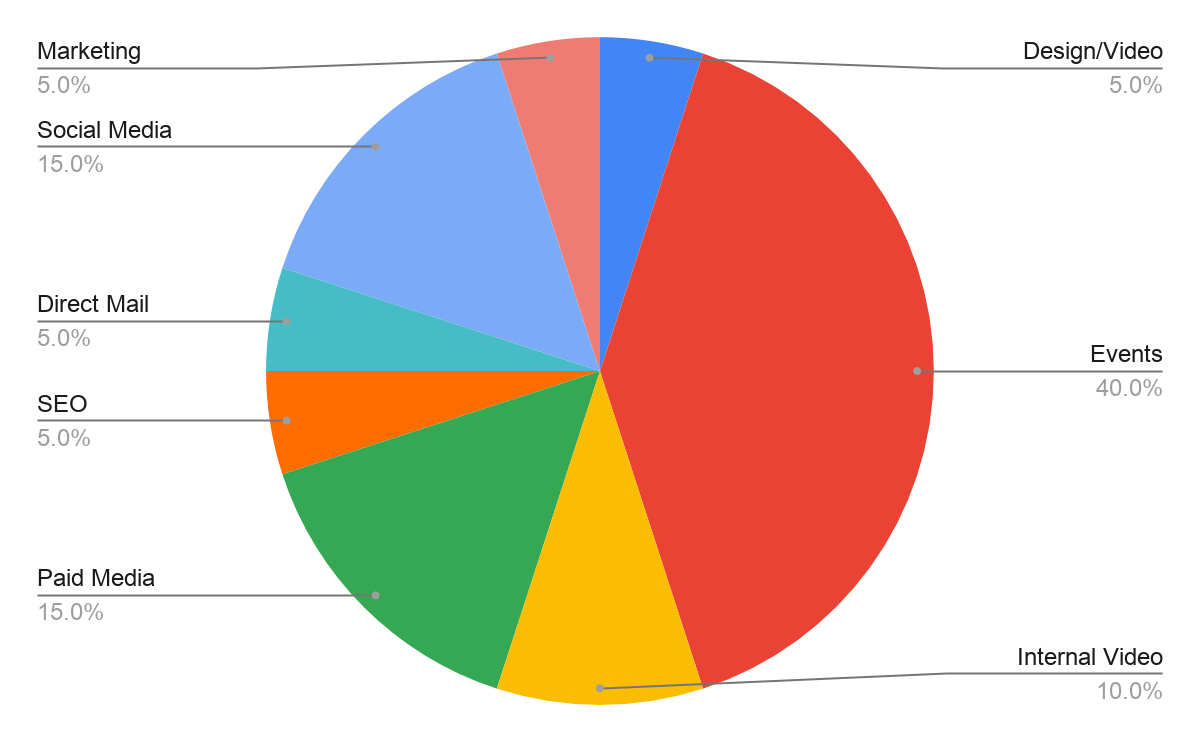
What Companies Are Continuing
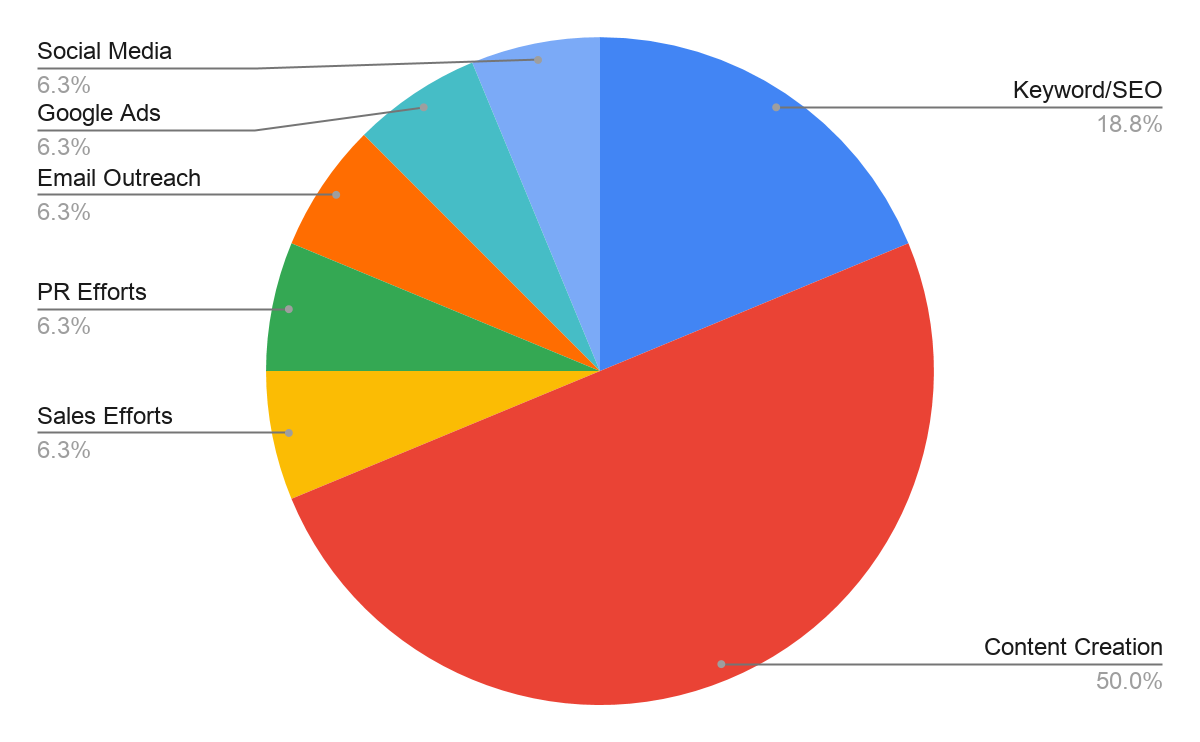
What Companies Are Starting
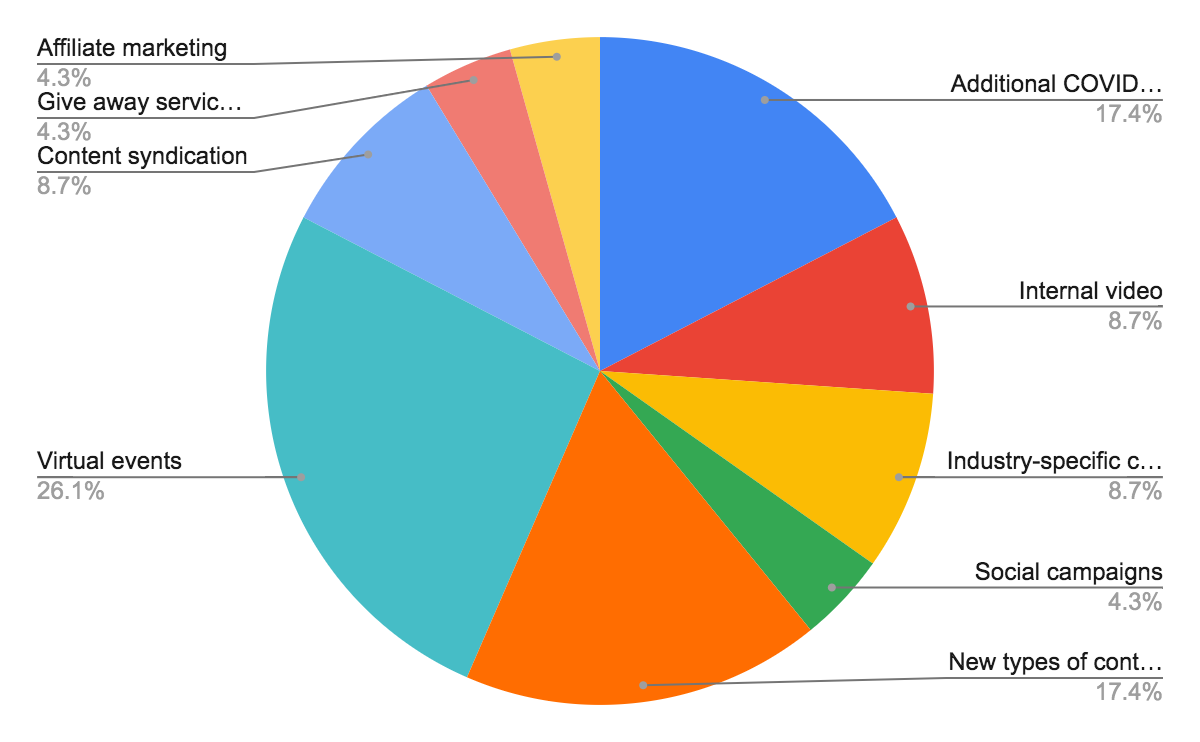
Trends We’re Seeing
Across the board and in every industry, companies are cutting their budgets. Marketing budgets are getting cut, but, as you can see in the charts, not being completely eliminated. (It would be too risky to do away with lead generation entirely.) The trends we’re seeing are:
- Decision makers are shifting their focus to activities that return leads.
- The “nice to haves” are being cut.
- All events are off—instead of in-person, people are switching to virtual events/meetings.
- Some have turned off paid search (PPC) completely (while fewer buying decisions are likely being made) and will turn it on again at a later date.
- Most marketers are keeping their content efforts going. Even if they aren’t seeing a lot of sales, companies want to keep growing their rankings so their content is front-and-center when demand returns.
In Their Own Words: Nectafy Clients & Other CEOs
Jenna Weaver, Marketing Manager at ClearPoint Strategy
Stop: We stopped our paid marketing. For us, that means any bidding we were doing on Capterra. We also put a pause on outsourcing design work. We don’t have a designer on our team, but there are a lot of tools we’ve been using recently that allow us to make simple designs without designer knowledge. Since we already had those tools in our toolbox, we decided to leverage them more to create materials in-house for now.
Similar to design work, we’re also moving some things in-house that we would normally do with partners like Nectafy—specifically, making videos on our own. We’re able to do that because we’ve been building up our video skills over the last few months, and were in a good place to make the change. So we’re not stopping or starting anything, just doing it in a different way.
Continue: We’re sticking to our long-term keyword strategy. We’re using this time to double down on some projects to help push our 2020 keywords forward, hoping that this will help us in the long term. If we continue to improve our keyword rankings, we can bring our website visits back up.
Start: We’ve published some content specific to managing in a crisis and are pushing our content through additional COVID-19 newsletters. We’re taking an approach of, “Hey, you might have some more time to focus on refining your strategy, here are the resources to do it.”
We’re also including tips around how to manage during this time, and how to prepare your organization so it can survive a crisis in the future.
Chad Reid, Vice President of Marketing and Communications at JotForm
Stop: The big one for us [to stop is] events, as is the case with so many other companies. I was planning on ramping up our presence at conferences this year, both as attendees and sponsors, and that's out the window for now. Our video marketing efforts have certainly been impacted as well. We have a full-time videographer, but right now we can't send him on any shoots. So our videos will be decidedly low-budget for the foreseeable future.
Continue: Content, for sure. If anything we're actually producing more content than we were before COVID-19, especially as we've noticed how our users are using our product to address the crisis.
Start: We're starting to focus our marketing efforts on the industries that can benefit from us the most during COVID-19. Healthcare workers, grocery stores, and restaurants weren't target customers in our original 2020 marketing plan, but we're creating resources, templates, and discount programs for them in the wake of the outbreak. We launched the Coronavirus Responder Program, aimed at providing a free HIPAA-compliant account to anyone facing the epidemic head-on.
Daniel Norwood, Vice President & Head of Marketing at Perceptyx
Stop: We’ve had to stop all paid media: Google ads, third party sponsorships, etc.
Continue: We will definitely continue doing blogs and creating content. In fact, we’re increasing the volume and frequency there.
Start: We’ve started doing more social and organically driven campaigns. Things like open Zoom discussions with the community have been working really well.
Dennis Miller, Marketing Manager at EverQuote
Stop: We've stopped all field marketing efforts, including conferences, in-person events, study groups, etc. We’ve also stopped producing new video content and have not been spending on direct mail (although this is a relatively small channel for us).
Continue: We will continue with our content production (blog articles, ebooks, etc.), email marketing, and our webinar program.
Start: We will expand our schedule of webinars and virtual events and create content specifically dealing with the circumstances our customers are facing due to COVID-19.
Victor Fredung, CEO at Shufti Pro
Stop: We do in-person marketing in industry events all over the world. Although we'll not stop doing them forever, we will avoid such gatherings for some time.
Continue: Our marketing plan primarily focuses on digital and content marketing, and we'll continue doing that. We'll continue posting content, writing white papers, etc. Also, Google ads will remain part of our normal marketing strategy.
Start: We'll start a collaboration marketing campaign because COVID-19 has affected businesses, and robust marketing efforts are necessary. It's time to create awareness regarding the need for contactless technologies so that businesses could be ready for any such crisis. The collaboration marketing will be conducted with both customers and non-customers. As we won't be attending events, we’ll start connecting with our prospects via virtual meetings and webinars.
Adam Hempenstall, CEO and Founder of Better Proposals
Stop: Once the pandemic ends, we’ll make some changes to minimize our losses and win some new business. We’ll stop marketing to businesses in the hospitality and travel industries for a bit. They will take time to recover from this major blow and we’ll be very careful about marketing to them.
Continue: We’ll continue doing lots of content marketing. People aren’t too keen on spending money, but they do consume content heavily and they will continue to do so in the upcoming months when lots of people will remain in isolation in some shape or form. Our content focuses on helping customers and giving them actionable tips that they can use—not on selling our product.
Start: We will start focusing on the remote industry. Businesses that do work remotely have persisted through the crisis and they will continue to do well in the months to come. We are preparing special offers for remote companies, and we’ll be promoting them in the upcoming months.
Andrew Gunderman, Founder and CEO of Vyra
Stop: My company will likely not stop doing anything we are currently doing. We are an online interviewing platform, so the current economic landscape has actually brought a lot of opportunity for us as a company.
Continue: We will continue marketing through social media, especially LinkedIn, which is our largest medium. We want to keep building relationships with potential clients and spending time gaining their trust.
Start: We will start giving away a lot of our services for free to help new customers in this trying time. This will allow us to demo our services to more potential clients, and help us develop trust and a relationship with them for us to sell to them in the future.
Jon Marcella, CEO of Jasper PIM
Stop: COVID-19 has allowed us to be creative with how we interact with people, but nothing beats face-to-face communication. Once the social distancing ban is lifted, we feel it's important to re-engage in face-to-face interactions. We put several conferences and meetups that we were hosting with partners on hold due to COVID-19, and it is our hope to push these events forward.
Continue: We will continue to foster relationships with partners that can provide value to our customer base. This will include planning more virtual events, a strategy that has taught us how to be resourceful with budget and has encouraged innovative thinking.
Malte Scholz, CEO and Co-Founder of Airfocus
Stop: After the coronavirus pandemic, we will stop spending money on PPC. While it can be a great method to get some easy wins in the short run, it just doesn’t make sense in the long run.
Continue: The coronavirus pandemic showed us that there is massive ROI in content marketing. In an age when people don’t want to buy, they do want to read and consume more content. We will continue writing about our experience as a remote company. Lots of people are switching to remote now, and I think many of them will stick to remote work even after the pandemic is gone.
Start: We will start producing some video content. So far, we’ve seen some potential in this type of content, but we have yet to see whether it will drive conversions.
Jane Kovalkova, CMO at Chanty
Stop: We will stop doing Facebook ads because we’ve seen really poor conversions through this platform. Our cost per lead is far too high, and the leads we do get have a short customer lifetime value.
Continue: We will continue focusing on SEO and getting customers through laser-focused, optimized content. This has been our number one customer acquisition method since we started, and we plan to double down on it in the time to come.
Start: We will start trying out content syndication. We already produce a lot of content, so maybe we will have a chance to attract more attention around what we plan to publish in the future through various syndication channels.
Carsten Schaefer, founder and CEO of crowdy.ai
Stop: One thing we will stop doing is LinkedIn ads. They were incredibly expensive even before the coronavirus pandemic and, since it started, the ROI is nowhere to be seen. We will find new ways to get a lower cost per lead.
Continue: We will continue with SEO. We’ve revamped our website and chosen a few keywords to go after, and we’ve seen some great results after two to three months. We want to give enough time for SEO to really kick in.
Start: We will do more affiliate marketing. We’ve tried it out and it proved to be an excellent source of leads for our business. Once the pandemic blows over, we want to connect with great affiliate marketers to work out something that benefits everyone involved.
Andre Yee, Founder/CEO of Triblio
Stop: Like most companies, we’ve stopped meeting in person and are now completely remote. We’ve also made adjustments in other areas as well. We typically host popular educational lunch sessions across the country called Real World ABM Tour. These lunches discuss current marketing challenges and offer practical advice on how account-based marketing (ABM) can solve them. However, due to COVID-19, we’ve hit the pause button on those events and pivoted our marketing focus to webinars and other online events.
Continue: We’ve always made it a priority to put our employees and customers first—that continues to be a priority for us during this global pandemic. Putting our employees first means making sure everyone is safe, healthy, and productive.
We’re also taking steps to remain connected with each other by scheduling virtual happy hours and buddy lunches. We also aim to deliver the highest levels of performance, availability, and marketing guidance for our customers during this time. That means our customer success team is continuing to diligently work with all of our customers through digital channels, while our engineering team continues to advance and enhance the Triblio platform.
Start: What we’re starting to do is create customer exclusive events and programs to care for our customers during this time. We’ve launched Triblio TableTalk—a virtual weekly conversation with our customers to share marketing expertise, exchange ideas, and generally encourage each other. We’ve also created a personalized content portal for every single customer so that they can receive valuable content specific to them.
Note: A few Nectafy clients asked to be cited anonymously. Their responses are below.
Co-Founder, Government Documentation Software Startup
Stop: We have decreased our spend on conferences, except for one that was able to go virtual for exhibitors. We have also decreased our spend on non-critical sales path efforts, such as articles for the sake of increasing search rankings.
Continue: We’ll continue spending on efforts that directly contribute to quality leads/sales.
Start: It is a good time for us to focus on our process, allowing us to become more intentional in developing content that drives quality leads. We’re cleaning up our sales process and metrics; we’re also focusing on articles around COVID-19, remote work, and how our products work well wherever you are.
Senior Vice President, Payments Company
Stop: [We plan to stop] the obvious: in-person events. We will probably pull out of all 2020 events.
Continue: We’ll continue creating content, but we’re repositioning the messaging based on certain pain points and where we see new demand. We’ll also continue our PR efforts focused on the same key messages.
Start: We’ll start testing content syndication and other paid programs.
What’s your B2B company’s marketing plan regarding COVID-19?
We’d love to continue to expand this article with information about the challenges B2B companies are facing, and how they’re reallocating their marketing plans in the foreseeable future. Leave a comment below or email me to let me know what you’re stopping, starting, or continuing for 2020.
